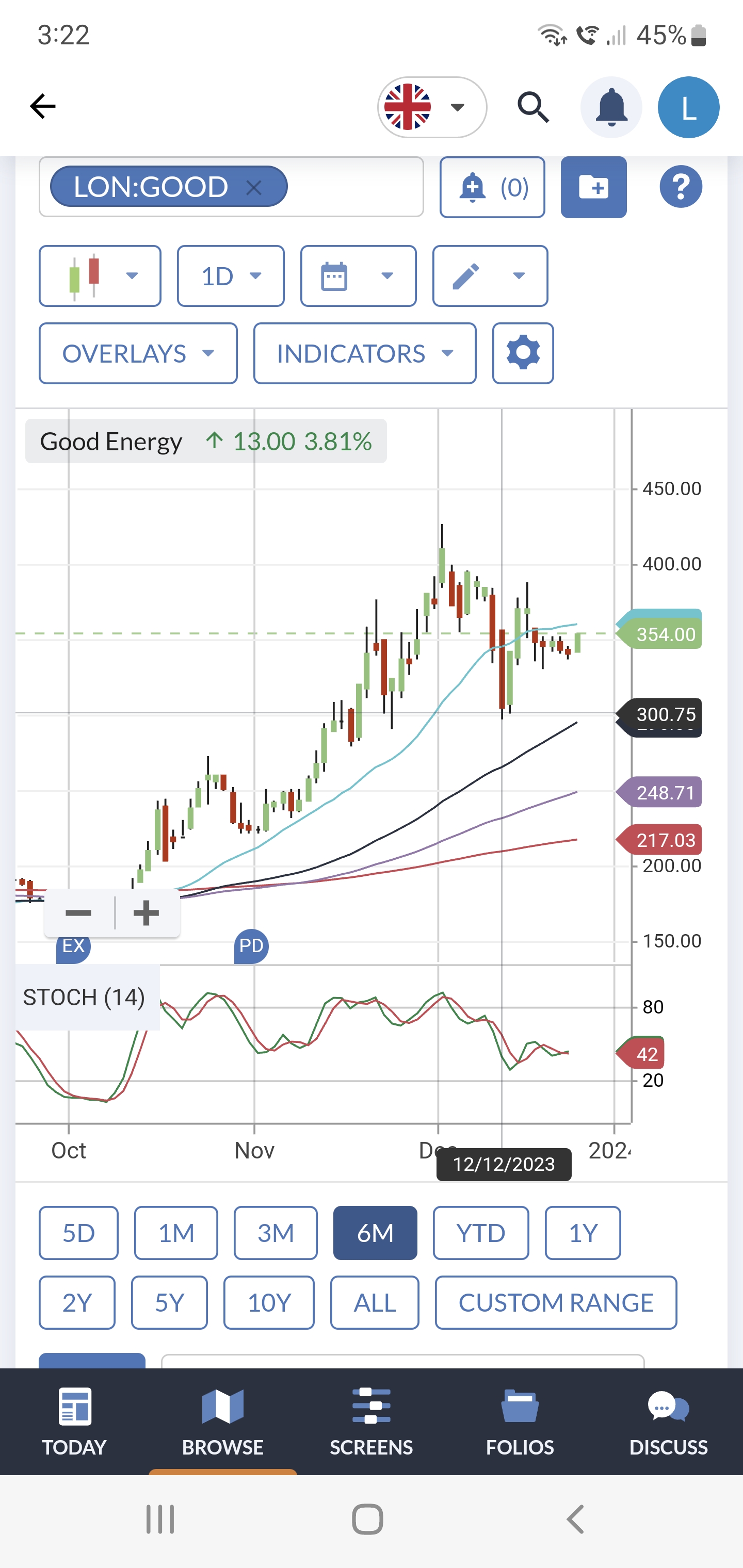Until recently, I hadn’t really heard much about energy business Good Energy (LON:GOOD), even though it’s been listed on the AIM market since 2012.
But Good Energy is currently sitting near the top of the StockRanks and keeps appearing in my screen results. It recently showed up in some of Ed’s multibagger screens, too.
Good Energy has also put in a notable share price performance recently, doubling since the end of September:
I’m keen to learn more about the story here and find out whether I should start paying more attention to this business.
100% renewable, no greenwash!
Good Energy was founded by Juliet Davenport in 1999 as a green energy supplier. To this end, the company acquired some renewable generating assets of its own, including the Delabole Wind Farm in Cornwall and a number of solar farms.
Good Energy was also instrumental in developing the concept of feed-in tariffs, which pay customers for the electricity they generate. The company has remained one of the market leaders in this area, even after the government’s original Feed-in-Tariff system ended.
This focus on decentralised generation has allowed Good Energy to build up a loyal army of more than 2,000 small-scale generators. These help to supply the company with its renewable electricity needs. Interestingly, the company says that more of its customers now generate their own power than buy it from Good Energy.
However, the profile of the business has changed dramatically over the last couple of years. Although the focus on decentralised generation remains, in 2022, Good Energy sold its own 47.5MWh renewable power portfolio to Bluefield Solar Income Fund (LON:BSIF).
To maintain its ability to guarantee to provide renewable electricity, the company has signed direct power purchase agreements (PPAs) with large renewable generators such as offshore wind operator Ørsted.
While many large corporations now use PPAs, this is apparently an unusual approach for a UK energy supplier. Most buy electricity from the wholesale market (including fossil fuel electricity) and then offset these emissions by buying renewable certificates (REGOs).
Good Energy has campaigned against this “greenwashing” and claims that these certificates are often double-counting renewable energy that has already…










